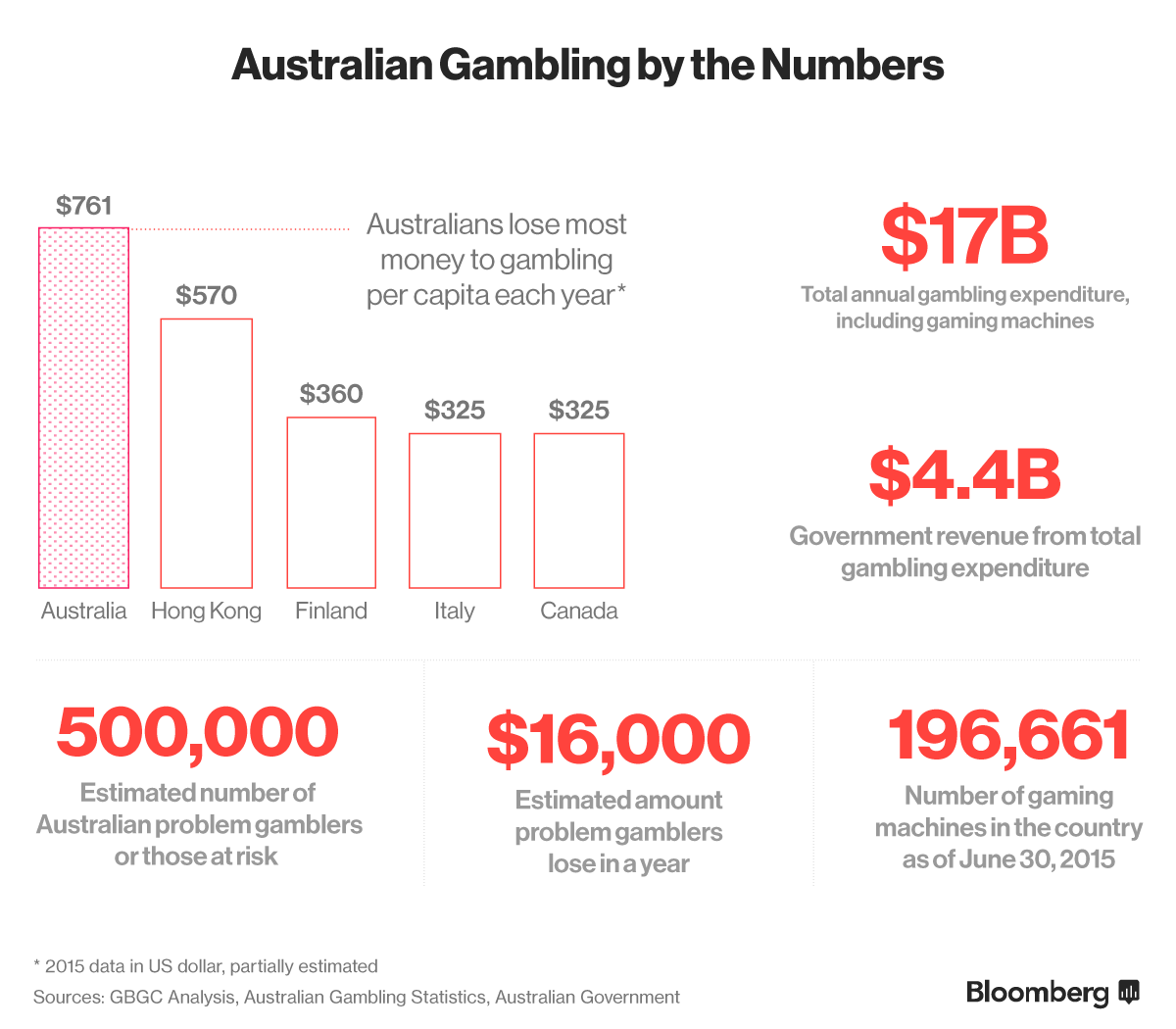After struggling with a gambling addiction for 13 years, Kate Seselja had enough. The 37-year-old mother of six was contemplating driving her car into a tree after losing more than A$500,000 ($383,000) playing slot machines.
“At first they were a bit of fun,” said Seselja, who sought help after almost joining the estimated 400 Australians with gambling-related problems who commit suicide every year. “It’s so normalized in Australia. There’s machines on just about every street corner.”
More than half of the A$23 billion that Australians gambled away last year was sunk into slot machines. While most countries restrict gambling to casinos and betting shops, Australia permits it in corner pubs and sports and veterans clubs. Despite having less than half a percent of the world’s population, it is home to a fifth of the world’s slot machines.
There’s scant will for political change: the industry is a major donor to lawmakers, including Prime Minister Malcolm Turnbull’s coalition, and previous attempts at reform have failed. Australian states and territories reaped A$5.8 billion ($4.4 billion) in taxes from gambling in the year through June 2015, easing the pressure on a federal government presiding over a fragile AAA rating and budget deficit made worse by political inertia and gridlock.
While the July re-election of anti-gambling independent lawmaker Nick Xenophon to the upper house of parliament—with a handful of senators from his party in tow—has reignited talk of reform, he’s sounding despondent.

“The hoteliers and clubs are powerful lobbyists and the No. 1 jackpot junkies are state governments,” said Xenophon, adding that Australian lawmakers are “terrified” of the gambling industry. “The federal government could wean them off their dependency but it doesn’t look like that will happen.”
A decades-old habit is hard to shake. Slot machines started proliferating in Australia in the 1950s when they were legalized in New South Wales, the nation’s most populous state and home to Sydney. Their evolution from clunky “one-armed bandits” into sophisticated video-game entertainments encouraged other states to adopt them in the early 1990s, as governments sought revenue sources in the wake of a recession.
Social Cost
Some 200,000 machines later, so-called “pokies” are the biggest driver of Australia’s gambling industry—but that’s come at a cost. About one in six Australians who play regularly has a serious addiction and loses on average about A$21,000 a year, according to government data. The social cost of gambling to the community is estimated to be at least A$4.7 billion a year.
Australia’s gambling addiction has made it the world’s biggest loser. The country spent $761 per capita last year, with Hong Kong and Finland coming in second and third place, according to U.K.-based Global Betting and Gaming Consultants. The U.S., home to the gambling mecca of Las Vegas, was 7th.








